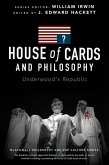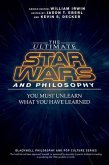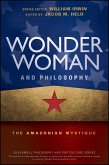What objects exist in the social world and how should we understand them? Is a specific Pizza Hut restaurant as real as the employees, tables, napkins and pizzas of which it is composed, and as real as the Pizza Hut corporation with its headquarters in Wichita, the United States, the planet Earth and the social and economic impact of the restaurant on the lives of its employees and customers? In this book the founder of object-oriented philosophy develops his approach in order to shed light on the nature and status of objects in social life. While it is often assumed that an interest in objects amounts to a form of materialism, Harman rejects this view and develops instead an immaterialist method. By examining the work of leading contemporary thinkers such as Bruno Latour and Levi Bryant, he develops a forceful critique of actor-network theory . In an extended discussion of Leibniz s famous example of the Dutch East India Company, Harman argues that this company qualifies for objecthood neither through what it is or what it does , but through its irreducibility to either of these forms. The phases of its life, argues Harman, are not demarcated primarily by dramatic incidents but by moments of symbiosis, a term he draws from the biologist Lynn Margulis. This book provides a key counterpoint to the now ubiquitous social theories of constant change, holistic networks, performative identities, and the construction of things by human practice. It will appeal to anyone interested in cutting-edge debates in philosophy and social and cultural theory.
Dieser Download kann aus rechtlichen Gründen nur mit Rechnungsadresse in A, B, BG, CY, CZ, D, DK, EW, E, FIN, F, GR, HR, H, IRL, I, LT, L, LR, M, NL, PL, P, R, S, SLO, SK ausgeliefert werden.
'David Hulme's is a passionate and personal yet professional plea for attacking poverty rather than trying to stop bodies washing ashore in the Mediterranean. We can still argue about definitions of poverty and the value of charity, but it is no longer possible in our interconnected planet to deny the self-interests of the wealthy West in addressing pandemics, narco-trafficking, climate deterioration, and terrorism. Read why things have to change.'
Thomas G. Weiss, The Graduate Center, CUNY
Thomas G. Weiss, The Graduate Center, CUNY









